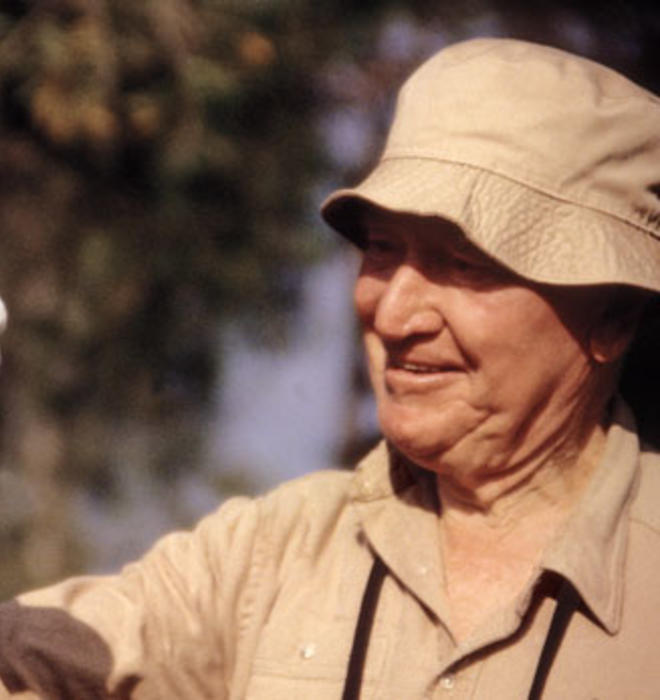
June 4, 1920 – Sept. 17, 2012
For Russell Train — Okinawa veteran, Columbia Law School grad, congressional aide, and federal tax judge — becoming a full-time environmentalist was about as exotic a career choice as a pedigreed Washingtonian could make in the mid-1960s. William K. Reilly — who like Train became Environmental Protection Agency administrator and World Wildlife Fund chairman — recalls that he and Train bonded over their parents’ distaste for their pursuit of careers in conservation: “They never got it.”
For Train, whose admiral-father had introduced him to hunting, the road to environmental awakening passed through Africa, where he participated in safaris in 1956 and 1958. Worried about the fate of wildlife during an era of decolonization and upheaval, Train founded the African Wildlife Leadership Foundation in 1961. Within a few years, he took positions with the U.S. arm of the World Wildlife Fund and the Conservation Foundation.
But as Train repeatedly would discover, protecting the environment is a multifaceted challenge. Reviewing a broad agreement with the Kenyan government years after it was struck, Train was shocked to find it had led mainly to poaching — mostly by local people who had co-existed with these animals for generations, says Alaric Sample, president of the Pinchot Institute for Conservation. Train realized that while the plan was scientifically sound, it had “completely neglected to consider the social and economic implications for local communities,” Sample says. From then on, Train made sure policies addressed those concerns.
President Richard Nixon tapped him to become undersecretary of Interior, then the first chairman of the White House Council on Environmental Quality, and the second EPA administrator. At the EPA, he took up such contentious issues as coastal-zone management, safe drinking water, pollutant discharges, adoption of the catalytic converter, and ocean dumping. “His years with the agency saw landmark environmental achievements whose impacts are still felt,” says Lisa Jackson *86, who filled the post during President Barack Obama’s first term.
Train left the government in 1977 to become president of the World Wildlife Fund, helping establish nature reserves around the world. In 1991, President George H.W. Bush awarded Train the Presidential Medal of Freedom.
Train saw environmentalism as a “unifying political force” — and “we don’t hear that much any longer from any politician,” writes Pomona College professor Char Miller. In recent years, Train chafed at the GOP’s direction on the environment, especially the skepticism by some in the party about climate change. He backed efforts by Jackson to regulate greenhouse gases. Of all his efforts, Train has said he was most proud of an effort named for him that seeks to educate people in Africa, Asia, and Latin America to manage their natural resources.
“Even those who disagreed on policy smiled upon hearing his name,” says Brooks Flippen, his biographer. “If we had more Russell Trains in Washington, our nation would not be in the sad state it is now.”
Louis Jacobson is a staff writer with PolitiFact in Washington, D.C.
CLICK HERE to watch a video about Russell Train ’41





1 Response
Jack Siggins ’60
10 Years AgoLives lived and lost
For all his renown as an attorney and leader of the EPA and World Wildlife Fund, Russell Train ’41 came into my life and became my friend initially in the role of a donor whose ancestor helped found George Washington University. On Feb. 9, 1821, President James Monroe signed legislation granting a U.S. charter for the establishment in the District of Columbia of an institution of higher education to be called Columbian College. The name of the school later was changed to George Washington University. Russell’s great-great-grandfather, Obadiah Bruen Brown, held title to the property on which the school first stood and became the school’s first president of the Board of Trustees. More than anyone else, Obadiah was instrumental in starting the school on a firm financial foundation.
Russell was a major donor to the modern GWU. A few years ago, I convinced him to donate his 19th-century portraits of Obadiah and his wife, Elizabeth, to GWU. Today, they hang prominently in the offices of the university president. What I will miss more than anything about Russell are his charm, sense of humor, and knowledge of how the world operates, all of which I was privy to over many lunches and conversations. He is sorely missed.